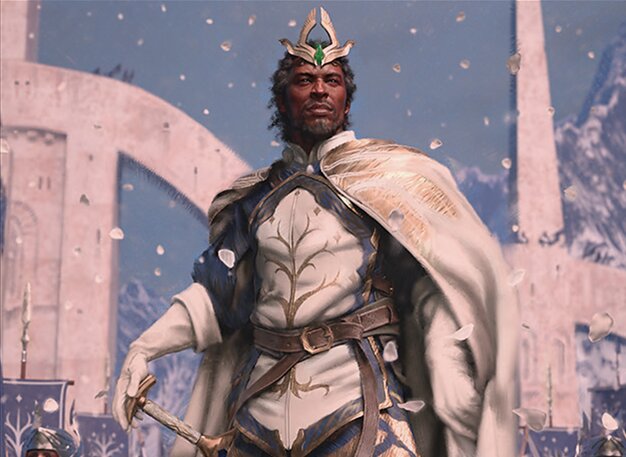Deck & Commander Strategies

Aragorn, King of Gondor
Build a resilient board presence leveraging combat prowess and thematic equipment or allies, aiming to outlast opponents and win through sustained combat damage.

Juri, Master of the Revue
Exploit combat phase manipulations to disrupt opponents’ attacks and blockers, generating incremental value and tempo advantages to secure victory through combat damage.
Gameplay Insights
- 1
Juri’s ability to control combat phases was pivotal in breaking Aragorn’s board momentum and forcing unfavorable blocks.
- 2
Aragorn capitalized on moments of board stabilization to push through damage, demonstrating the value of building a steady, resilient board.
- 3
The duel showcased the importance of timing in combat phase interactions and how commanders with combat manipulation can heavily influence the flow of the game.
Notable Cards
-

Aragorn, King of Gondor
-

Juri, Master of the Revue
Gameplay Summary
The Duel Commander match featured a clash between Aragorn, King of Gondor, and Juri, Master of the Revue.
The game unfolded with both players developing their board states cautiously, leveraging their commanders’ unique abilities to gain incremental advantages.
Aragorn focused on assembling a strong board presence, likely supported by equipment or thematic synergies reflecting his leadership and combat prowess.
Juri, on the other hand, appeared to utilize a tempo-oriented strategy centered around her ability to manipulate combat phases and generate value from combat interactions.
The game’s key turning points revolved around critical combat phases where Juri’s manipulation of attackers and blockers disrupted Aragorn’s plans, while Aragorn sought to stabilize and build toward a decisive swing.
Ultimately, the match highlighted the tension between Juri’s agile, combat-centric style and Aragorn’s more grounded, resilient approach, with momentum shifting as each player capitalized on their commander’s strengths to press for the win.





















